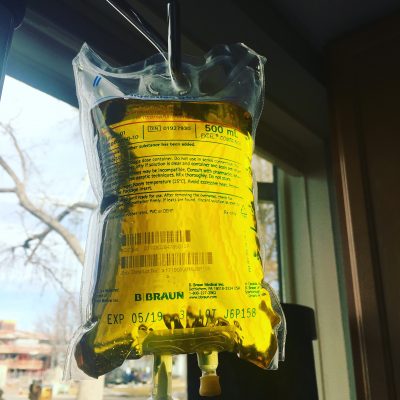IV Vitamin C Therapy
 When it comes to Ascorbic Acid (Vitamin C), we humans are all born without the ability to produce it. Mammals except primates and guinea pigs can make ascorbic acid from glucose. We humans cannot. Therefore, we need to obtain our ascorbic acid from food, or intravenously in certain illnesses.
When it comes to Ascorbic Acid (Vitamin C), we humans are all born without the ability to produce it. Mammals except primates and guinea pigs can make ascorbic acid from glucose. We humans cannot. Therefore, we need to obtain our ascorbic acid from food, or intravenously in certain illnesses.
The RDA is 60 mg per day, generally considered the amount necessary to prevent scurvy. But this is a distorted picture of how much ascorbic acid we really need. Stress affects the amount we need as does intake of other nutrients.
Many published studies have shown how IV Vitamin C has been a successful cure for polio (1949), hepatitis (1962 and 1981), and viral encephalitis (1951).
How does it work? All toxic and infectious damage occurs via oxidative stress, leading to free radical damage of many cells in the body. Vitamin C strongly activates the immune system’s anti-microbial and anti-toxic functions. It has proven to be effective in various clinical conditions over the past 75 years. It is safe: among drugs and supplements, it may be the least toxic of all. And it is remarkably inexpensive for what it does. Our bodies use Vitamin C to form collagen in our connective tissue, and to form muscles, tendons, ligaments, and fascia. Also it is used to form our bone matrix, blood vessels, the meninges that surrounds our nerves, and in adrenal gland maintenance. For these functions, in most people, it is effective when taken orally, in food or in supplement form.
In patients with cancer, Vitamin C leads to the generation of hydrogen peroxide inside cancer cells. This leads to cancer cell destruction. Our own cells, however, have an enzyme that prevents them from being destroyed by this intracellular peroxide. Vitamin C also chelates mercury. The University of Kansas Medical Center has conducted many studies in the effectiveness of intravenous Vitamin C in cancer. In high enough doses intravenously (usually 50gm, 75gm or 100gm), it is tumoricidal (leads to cell death of cancer cells).
Intravenous Vitamin C is synergistic with many chemotherapy agents to make them even more effective. In cancer, it is best used along with Vitamin K, Vitamin D, magnesium, alpha lipoic acid, and calcium. IV Vitamin C is given slowly, ramping up to therapeutic doses over weeks.
